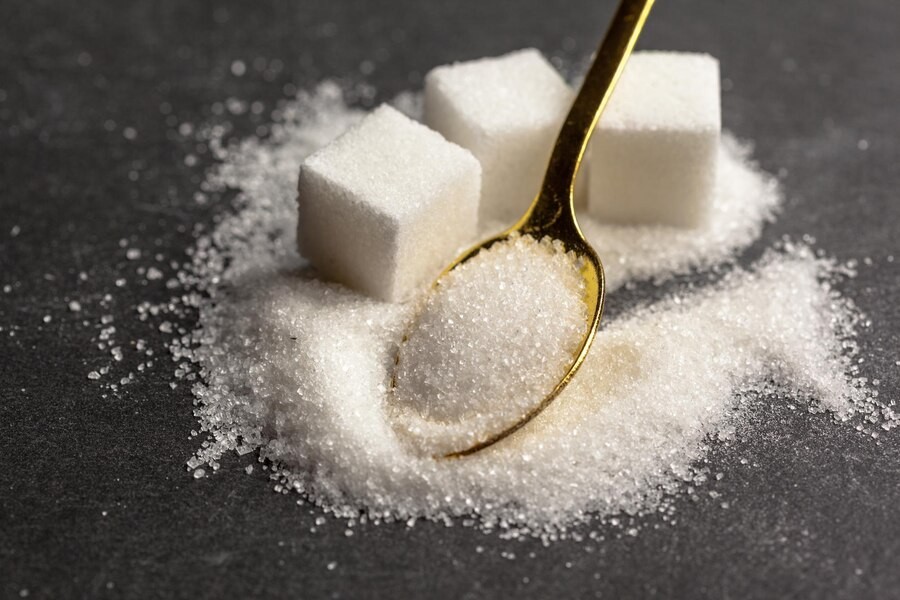Minuman manis kekinian seperti teh susu, teh boba, kopi gula aren, dan minuman bertopping lainnya telah menjadi tren yang digemari banyak orang, terutama anak muda. Rasa manis dan menyegarkan, serta penampilannya yang menarik sering kali membuat orang ketagihan dan menjadikannya sebagai minuman favorit untuk dikonsumsi sehari-hari.
Namun, di balik popularitasnya, mengonsumsi minuman manis kekinian memiliki dampak negatif bagi kesehatan, salah satunya peningkatan risiko perlemakan hati non alkoholik atau penyakit liver lainnya.
Dampak Fruktosa Terhadap Kesehatan Liver
Sebagian besar minuman manis kekinian mengandung gula tambahan dalam jumlah tinggi, baik berupa gula pasir, sirup jagung, maupun fruktosa. Fruktosa dianggap sebagai gula yang lebih berbahaya karena metabolismenya terjadi di hati.
Tidak seperti glukosa yang bisa dimanfaatkan oleh hampir setiap sel tubuh, fruktosa hanya bisa diproses di hati. Ketika hati terlalu banyak menerima fruktosa, proses metabolisme ini berubah menjadi lemak.
Penumpukan lemak di hati akan menyebabkan peradangan, yang pada akhirnya dapat memperburuk fungsi hati. Dalam jangka panjang, ketika hati dipenuhi oleh lemak, maka hati tidak akan mampu berfungsi dengan baik sehingga berisiko terkena penyakit hati.
Minuman manis kekinian sering kali dikonsumsi lebih dari satu kali sehari. Minuman ini mengandung gula dalam jumlah setara atau bahkan lebih tinggi dari kebutuhan harian tubuh. Jika kebiasaan ini tidak diimbangi dengan pola makan sehat dan aktivitas fisik, risiko terjadinya penyakit hati berlemak semakin meningkat.
Baca Juga: Manfaat Menerapkan NutriGrade Dalam Memilih Minuman
Kenali Gejala Penyakit Perlemakan Hati Non Alkohol
Penyakit perlemakan hati non alkohol biasanya tidak disertai gejala apapun. Namun, Anda mungkin merasa lebih mudah lelah, tidak enak badan, dan merasa tidak nyaman di area kanan atas perut.
Apabila perlemakan hati telah berkembang menjadi kondisi yang lebih parah, Anda akan mengalami gejala berikut:
- Gatal-gatal di kulit
- Pembengkakan di perut
- Sesak napas
- Pembengkakan di kaki
- Munculnya pembuluh darah mirip jaring laba-laba di bawah permukaan kulit
- Pembesaran limpa
- Telapak tangan merah
- Jaundice (perubahan warna kulit dan bagian putih mata menjadi kuning)
Baca Juga: Menderita Perlemakan Hati, Ini Rekomendasi Makanan yang Disarankan
Cara Mencegah Penyakit Perlemakan Hati Non Alkoholik
Penumpukan lemak di hati yang terjadi akibat konsumsi makanan dan minuman dengan gula berlebih dapat dicegah. Berikut adalah beberapa cara yang efektif untuk dilakukan:
- Mengurangi konsumsi minuman manis, dan memperbanyak minum air putih, teh tanpa gula, atau jus buah segar tanpa gula
- Membatasi makanan olahan dan kemasan
- Meningkatkan konsumsi makanan tinggi serat
- Mengurangi penggunaan gula tambahan dalam masakan
- Memilih jenis karbohidrat kompleks seperti nasi merah, oatmeal, atau roti gandum utuh
- Menghindari sereal sarapan
- Berolahraga secara rutin seperti berjalan kaki, bersepeda, atau berolahraga ringan lain untuk membantu mengontrol berat badan
Dengan menerapkan pola makan rendah gula, Anda dapat mengurangi risiko terkena penyakit perlemakan hati non alkoholik atau penyakit liver lainnya. Jangan ragu untuk berkonsultasi dengan dokter bila memiliki keluhan terkait dengan penyakit liver.
Anda bisa berkonsultasi dengan dokter melalui aplikasi Ai Care yang dapat diunduh di App Store atau Play Store.
Mau tahu informasi seputar penyakit lainya? Cek di sini, yah!
- dr Nadia Opmalina
Beth JoJack (2021). Even modest consumption of added sugar may affect the liver. Available from: https://www.medicalnewstoday.com/articles/even-modest-consumption-of-added-sugar-may-affect-the-liver
WebMD (2024). Surprising Things That Can Damage Your Liver. Available from: https://www.webmd.com/hepatitis/ss/slideshow-surprising-liver-damage
UChicagoMedicine (2024). Type 2 diabetes and liver disease: How they’re connected. Available from: https://www.uchicagomedicine.org/forefront/gastrointestinal-articles/2024/march/type-2-diabetes-liver-disease
Helaina e. Huneault, et all (2023). The Impact and Burden of Dietary Sugars on the Liver. Available from: https://www.ncbi.nlm.nih.gov/pmc/articles/PMC10629746/
UCLA Health (2021). Added sugars in diet can cause fat accumulation in liver. Available from: https://www.uclahealth.org/news/article/added-sugars-in-diet-can-cause-fat-accumulation-in-liver
CDC (2024). Type 2 Diabetes and Your Liver. Available from: https://www.cdc.gov/diabetes/diabetes-complications/type-2-diabetes-liver-disease.html
WebMD (2023). What to Know About High-Fructose Corn Syrup. Available from: https://www.webmd.com/diet/what-to-know-about-high-fructose-corn-syrup
Jillian Kubala, MS, RD (2023). 12 Common Foods with High Fructose Corn Syrup. Available from: https://www.healthline.com/nutrition/foods-with-high-fructose-corn-syrup
Mayo Clinic (2024). Nonalcoholic fatty liver disease. Available from: https://www.mayoclinic.org/diseases-conditions/nonalcoholic-fatty-liver-disease/symptoms-causes/syc-20354567












